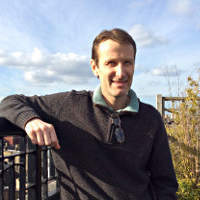Today is a commemoration in the Anglican communion of Elizabeth Ferard who is credited with revitalising the deaconess order in the Anglican Communion after her ordination on this day in 1862. She founded a community that served in a poor parish in Bloomsbury, Kings Cross and Somers Town.
For those who aren’t familiar there are three ranks of holy orders – deacons, priests and bishops. Bishops have the role of oversight the church, priests of leadership in their communities and the role of the deacon is primarily that of service such as through teaching.
Often today, the role of deacon has become little more than the probationary period before priesting but in some churches and at different times in history there has been a much richer understanding of the deacons role.
It is helpful to note that at any subsequent ordination, the priest or bishop does not cease to be a deacon, rather their authorised ministry is expanded. Service of Christ and his people should remain at the heart of their ministry.
Now, it is clear from Paul’s writings that there were deaconesses is the early Church but they had vanished for hundreds of years until revived amongst Lutherans in Germany in the early 19th century. Elizabeth Ferard was encouraged by Archibald Tait, then Bishop of London and later Archbishop of Canterbury, to visit a deaconess community Kaiserwerth. The Rev Adrian Leak writes that she initially feared it was going to be a waste of time. Apparently she found the food was dismal and after her first meal, she felt dizzy, and had to take some brandy.
For some days, no one seemed to know what to do with her. Pastor Fliedner, the director, ignored her. She found the dialect the sisters spoke quite different from the German she had learnt but, after some weeks, things got better. She was not the first Englishwoman to be trained at Kaiserwerth. Florence Nightingale had been there a few years before, and so had Elizabeth Fry the prison reformer.
When she returned to the UK, Elizabeth stayed with Anglican nuns at Ditchingham and these two visits shaped the deaconess order that she founded in North London in what Bishop Thorold, another of their champions, called the “filth and hideous darkness” of the slums.
I have been reminded of the poverty of those days recently as a result of some family research that my wife has conducted which shows a history over some years of short tenancies in various deprived areas around London. The maps of Charles Booth, produced as part of his enquiry into life and labour in London, bring the character of those communities and the attitudes of the day towards them, to life. For example, Clarendon St is described – towzled haired women, standing at open doors, bare-armed; dirty children, and the houses with too many broken windows, stuffed with temporary mendings. But nothing is charged against the street worse than roughness and drunkenness.
What characterised the development of the work of deaconesses, and secured their place in the Church of England, was their integration into the diocesan and parochial system. It was that, and the deliberate absence of life-vows, that distinguished them from the Anglican sisterhoods.
It was intended that theirs was to be a serving, not a leading, part. At the Office for the admission of a deaconess, the Bishop exhorted the candidate “to set aside all unwomanly usurpation of authority in the Church” but it soon became clear that many women who had been blessed with a talent to serve were also possessed of a vocation to lead.
Bishop Tait might have been liberal by the standards of his time, encouraging the development of an order of deaconesses in the Church but clearly, he regarded positions of leadership as inappropriate for women. The church through the ages has always struggled with Christ’s radical inclusivity and has often conformed, and indeed helped to shape, far more conservative social norms.
The examples of trailblazers like Elizabeth Ferard are important and of course our patron, St Bride, or Brigid, presents an example from an earlier age. She founded both a convent and a monastery in Kildare and invited Conláed – later St Conleth – to help her run her two institutions.
I would like to share with you a prayer for Brigid’s feast from the Northumbria community’s daily Celtic Prayer, it has a sense of the service and hospitality towards the poor at the heart of Brigid’s ministry and I imagine at least that Elizabeth Ferard might have approved:
I should like a great lake of finest ale for the king of kings.
I should like a table of the choicest food for the family of heaven.
Let the ale be made from the fruits of faith and the food be forgiving love.
I should welcome the poor to my feast for they are God’s children.
I should welcome the sick to my feast for they are God’s joy.
Let the poor sit with Jesus at the highest place and the sick dance with the angels.
God bless the poor,
God bless the sick,
and bless our human race,
God bless our food,
God bless our drink,
all homes, oh God, embrace.
Amen.



